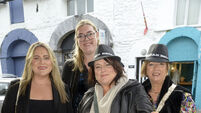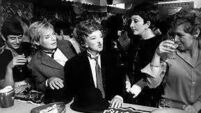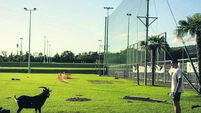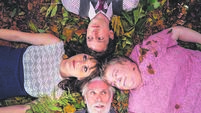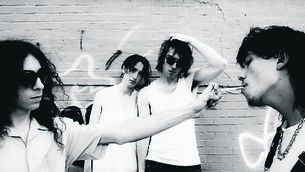Amaro Freitas: Ready to jazz it up with the people of Cork
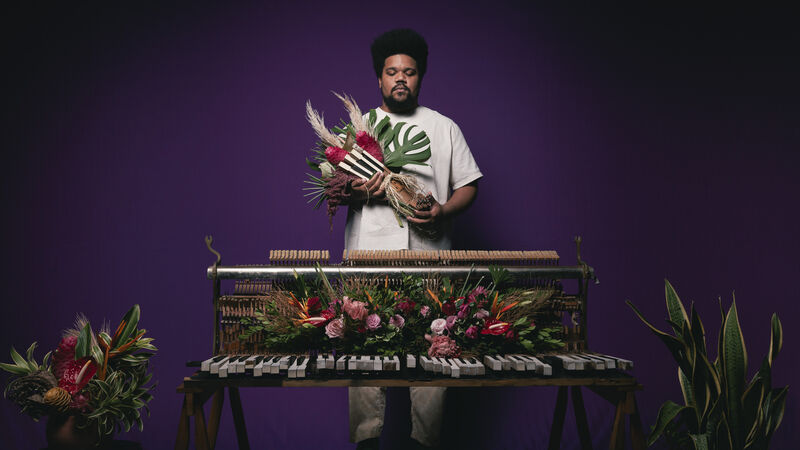
Amaro Freitas and band perform at the Triskel Arts Centre Christchurch as part of the Guinness Cork Jazz Festival.
Amaro Freitas joins your writer from his home in Recife, Brazil, via the miracle of Zoom, and after some jiggery-pokery with audio connections, and some quick hellos, he cuts in with a fairly big interjection to set the tone: “I'm very happy to hear. This, this is the first time I have an interview in English alone,” he says, with a warm smile, as your writer quickly mentally rejigs his line of questioning, and starts as he means to go on.
2023 single ‘Dança dos Martelos’, a leadoff from his upcoming fourth LP, is a sprawling, long-form solo piece that sees the piano virtuoso openly experimenting with the sonic and tonal possibilities of the treated instrument - a point of which he is markedly proud, as far as balancing expectations created by his critically-acclaimed work to date, with an innate impulse for experimentation, as well as a feeling for his country’s indigenous peoples and their lives.
“I started the song four years ago, and I put some things in my piano. My idea was to do the mixing of prepared piano, polyrhythms and the sounds of the forest. I have different references. John Cage is a great reference because of the prepared piano, but I live in a tropical city, and it might sound more tropical. On this album, I'm using other things, like tape, and e-bow, on guitar, but I'm also using sounds from the Amazon.
“I played in Manaus, Amazonas and the first time I saw the water, the forest or indeed, the indigenous people, it was a very different Brazil. ‘Dança dos Martelos’ is one song from this new album. I have ‘Viva Nana’, Nana [Vasconcelos] is a great, important percussionist from my hometown. For example, Down Beat magazine voted him best percussionist in the world for eight years. That's very crazy, and important for me. Nana has two albums I like very much, ‘Amazonas’ and ‘Africadeus’.
“On these albums, Nana connects the sounds of [Brazilian percussion instrument] the berimbau, sounds of the flute, with nature sounds, the indigenous sounds, sounds of the forest. The idea in Dança dos Martelos is to have John Cage and Thelonious Monk, as reference with Nana Vasconcelos. I think the piano is more percussion than melody or harmonics.”
That same sense of experimentation is tangible on recent single Melaninha, which leans very heavily into hip-hop and tape manipulation - and while the esteem in which Freitas is held for his output and chops in the jazz genre is part of the story, his work hints at so much more than maybe some hardened jazz cats might expect.
“Yeah, Melaninha is another experiment for the prepared piano. When I make music, I like to have a lot of time in the studio, and when Melaninha came to me, I was recording with Milton Nascimento, a great singer from Brazil.
“I have different references, all my life. When I was a little boy, my father introduced the sound, the music in my life. In church, I listen to music and I like the song. When I was 15 years old, I listened for the first time to jazz, Chick Corea Trio!
“When I listen for the first time, 'whoa, that's very crazy, that is very different'. My songs, you have the influence of the church, European sounds, the jazz and the afro sounds, and rap, and I think it's better when I put all these influences in my piano.
2021’s album ‘Sankofa’ saw Freitas and his collaborators forwarding the legacy of Nana and others who sought to reach into the history and stories of the Black Brazilian experience, which, even for a country as rich in jazz history as Brazil, we really don’t see represented an awful lot.
“When I was a little boy, I didn't learn about black historical figures in school. Yes, I learned about colonisation, about Don Pedro, it's white people from Portugal, for example. And it's very important for me now, to pay attention to this history. Because in Sankofa, I think I introduced in my song, my ancestors, in this history I didn't study when I was a little boy.
“[There's a song on 'Sankofa'], 'Bacquaqua' [about a West African slave who escaped Brazil], wrote the history of our culture. For example, 'Cazumbá' and 'Batucada', the rhythms are samba, from Rio de Janeiro. I think in the moment [that these ideas came to Freitas] that I'm playing in polyrhythms, but when you listen, you'll think 'oh, that is the samba'. Yes, yes. It's a different samba.
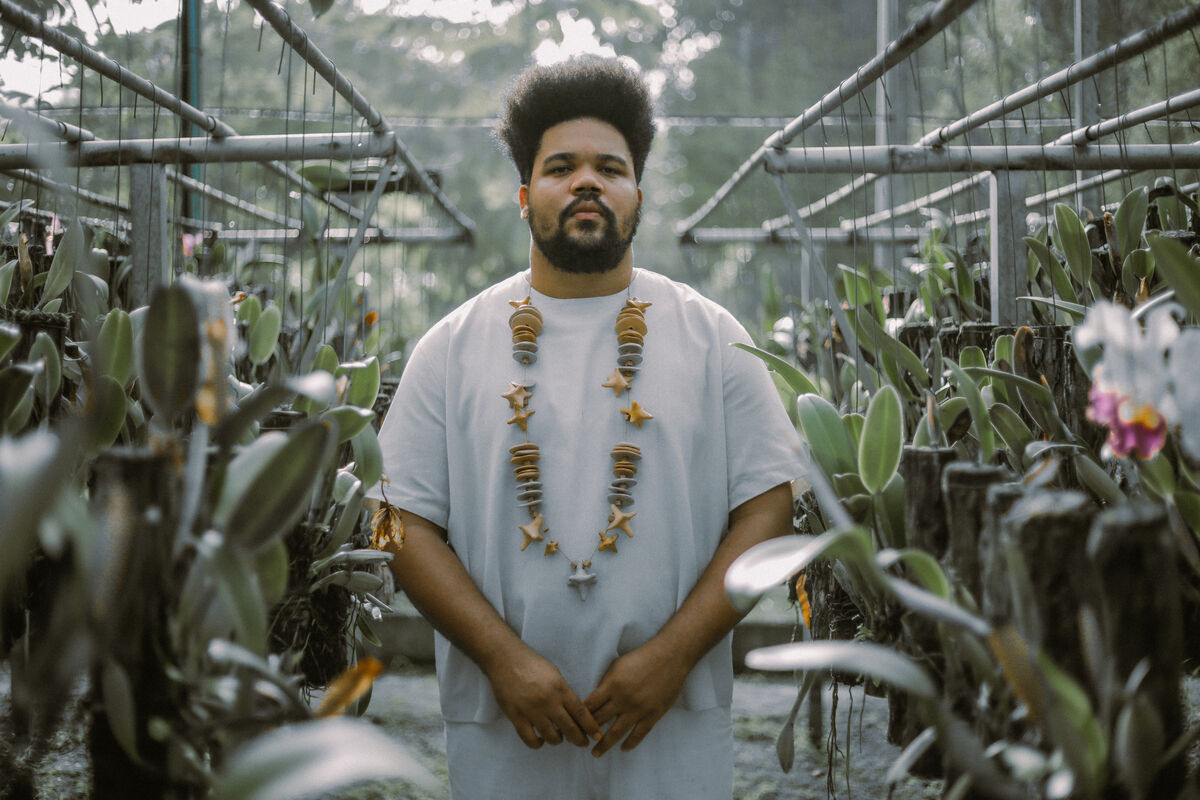
“If you think about the bossa nova history, we don't have black people in these conversations, on the bossa nova movement. But we have the black people, and they are the reference. The history doesn't talk about the black people. For example, we have a great pianist living in New York. Don Salvador. His LP, it's about $400, it's very expensive. But now, he plays in a restaurant? Yes, indeed. It's very important to think about this question, in the history of my life and in the music of Brazil.”
From there, Freitas expands on incorporating that wider Brazilian musical legacy and idiom, in terms of both popular music styles and aspects of Indigenous Brazilian culture. not only into jazz, but the process of placing all of these reference points and renewed historical curiosities into his own contemporary space.
“Brazil has different rhythms and different cultures. Every year, I make a discovery. A new rhythm, a new history, a new culture. Brazil is a very big country. When I record my album 'Hasif', it's an Arabic word. In my hometown, we have Arabic reference, and the indigenous reference.
“Some of the rhythms, like the Coco, very beautiful, but very difficult to dance. Some of them are very particular, and when I see them, the dance, the culture, I think, 'I don't know Brazil'. Because on the television, we can watch 'pop' Brazil, but for me it's very important, to know more of Brazil.
“There are more than two thousand ways of the indigenous, and I stay very crazy, when I see all the cultures, Brazilian cultures, and I need to have a connection with different types of the sounds of Brazil, to people internationally. I think I have this mission.”
This mission of Freitas’ extends to Cork for the Jazz, playing a pair of evening performances at the Triskel Christchurch as part of the arts centre’s lineout, typically geared at more discerning genre fans. He collects his thoughts about returning to Cork after performing last year.
“Yeah, last year I played in Cork, with my Brazilian trio. I had a good experience with the people because when I go to play a concert, I think I want to get the best concert, always. Yeah. I need to pay attention all the time in the concert. I give the sound for the people, and the people give the energy for me, in this moment. We change the energy. Yes, it's very crazy, but very real.
“In Cork, people [sang] with me a beautiful melody, in the church and in this moment, I remember my mother and my father, because I was in Cork in church, to play a European melody. It's very crazy. Cork in the international festivals is very important.”
Amaro Freitas and band perform at the Triskel Arts Centre Christchurch on Saturday, October 28, for two performances. Doors at 6pm and 8pm, tickets €25 from https://triskelarts.ticketsolve.com/

